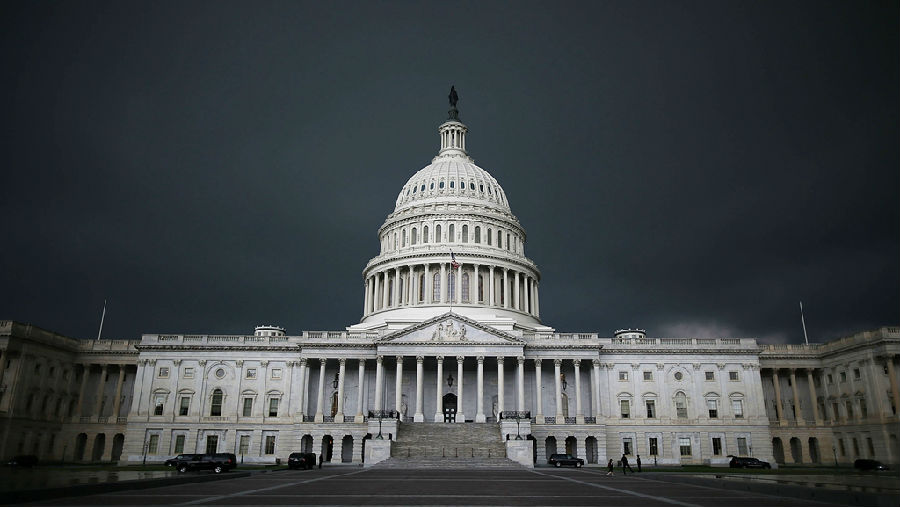The Republican tax plan will soon enter American law. The bill passed the Senate in the early hours of Saturday, and will now be reconciled to the not-too-different House version, readying it for the presidential pen. The vote fell strictly on party lines amid an ugly frenzy of last-second amendments scribbled in the margins. Even the senators did not know precisely what they were voting on. So it is worth taking a step back to consider, in broad outline, the changes that the plan will bring.
美国共和党的税改计划很快将成为法律。上周六凌晨,该法案在参议院获得通过,现在将与大同小异的众议院版本进行协调,随后递交给总统签署。投票严格按照党派站队,在最后一秒匆匆加入了很多修正(疯狂的“马拉松连续投票”程序)。甚至连参议员们自己都并非准确知道自己在为怎样的法案投票。因此现在有必要退一步,大致考虑一下,这项税改计划将带来哪些变化。
These fall into three categories: big tax cuts for business, which will significantly increase the budget deficit; a reshuffling of individual tax rates, which will have a much more limited net effect; and several halfhearted efforts at genuine reform.
变化主要有三类:对企业大幅减税,这将大幅增加预算赤字;重新调整个人税率,这对预算平衡的最终影响要有限得多;以及朝着真正的改革方向做出的多项不温不火的努力。
Economically, the most important question is the effect on growth and investment of cutting the headline corporate tax rate from 35 per cent to 20 per cent. There are few certainties here. One is that the cut will increase the deficit by a large amount — at least $1tn — over a decade. The idea that the cut would pay for itself has modest support in theory and none in history. It is also certain that the cut will produce some growth: it is if nothing else an injection of cash into the economy. The question is whether the growth will be worth the cost. The battle lines on this issue are drawn. Only experience will resolve the debate conclusively.
在经济方面,最重要的问题是把企业税从35%削减至20%的举措对于经济增长和投资的影响。关于这个问题,一切几乎都不确定。一种影响是,削减企业税将使未来10年赤字大幅增加——至少增加1万亿美元。认为削减企业税可以“自己为自己买单”的想法在理论上的依据有限,在历史上没有先例可循。此外,可以肯定削减企业税将带来一定的增长:至少相当于向经济注入资金。问题在于,它带来的经济增长是否足以补偿它的的成本。在该问题上,已经形成了对立的两派。只有经验才能最终为这场辩论敲定胜负。
It must be noted, however, that the additional money will land in corporate coffers at a time when profits are already near all-time highs and many companies are flush with cash. Fixed investment is low despite this. Still higher profits may not change this pattern. It does not help that executive pay packages have changed in the recent decades, encouraging distribution rather than investment of profit.
然而,需要注意的是,减税带来的额外资金将在如下情况下进入企业的金库:企业利润已经接近历史高点、很多企业现金充裕。尽管如此,固定投资仍然低迷。利润进一步增加可能无法改变这种模式。另一个无助于模式改变的因素是,最近几十年高管薪酬制度已经改变,鼓励把利润拿出来分配、而不是投资。
On the individual side, average rates on wages will fall one percentage point, according to the Joint Committee on Taxation. Marginal rates — the amount paid on an additional dollar of wages — will fall by 2.4 points. The plusses and minuses are complex. The child tax credit increases, for example, but some important deductions disappear. In any case the long-term impact will be muted: all the changes to individual rates disappear after a decade. Because of the massive expense of the corporate rate cuts, the sunset of the individual changes was necessary to satisfy Senate deficit rules.
对个人而言,据美国国会税收联合委员会(Joint Committee on Taxation)表示,工资的平均税率将降低1个百分点。边际税率(工资每额外增加1美元需要支付的税款)将减少2.4个百分点。具体税率增减项情况非常复杂。比如,儿童税收抵免提高,但一些重要的应税收益额抵免被取消了。无论如何,从长期来看影响都会消失:个人所得税的所有变化都会在十年后消失。由于削减企业税的巨大支出,个人所得税的税率变化设置废止时间对于满足参议院的赤字规定来说必不可少。
It is dispiriting but not surprising that the bill does as much as it does for the most fortunate. The carried-interest tax break remains, the estate tax falls, and the top marginal rates will apply to less taxpayers (and will probably fall). More beneficial to the rich than any of these, most likely, is the reduction in taxes on income from “pass-through” business structures, which pay no corporate taxes. The nominal justification for this is to help small business, most of which is structured in this way. In all likelihood, however, the great majority of the benefit will go to wealthy investors and professionals. Efforts to write rules to distinguish the two groups will add complexity and may prove ineffective. There is room for the lavish treatment of the rich to be restrained as the Senate and House versions are reconciled. Centrist Republicans should press hard for this.
该法案尽可能地为富人服务,这令人沮丧但并不意外。附带权益税收优惠仍然保留,遗产税降低,最高一档边际税率的适用人数将减少(税率也很可能降低)。对于富人来说,最有利的可能是来自“过渡法人企业”(pass-through business)结构——此类企业不交纳企业税——的收入税收减少。该做法名义上是帮助中小企业,因为大多数中小企业都属于这类结构。然而,十有八九,绝大部分好处将流向富有的投资者和专业人士。试图制定规则来区分这两类群体,将增加复杂度,并且可能收效甚微。在参议院和众议院协调各自的税改法案版本的过程中,仍然有空间来限制对富人的税收优待。中间派共和党议员应该努力促成这一点的实现。

There are various elements in the bill that gesture towards real reform. Deductions for mortgage interest, corporate debt costs, and state and local taxes will be curtailed. There is also a partial move from a global to a territorial system. None of these go far enough. But they do serve as reminders of what a visionary tax-reform bill — as opposed to what is in effect a big tax cut for business — might have looked like.
该法案中有多处地方做出了进行真正改革的姿态。按揭利息、企业债务成本以及州和地方税收对应税收益额的抵免都将被削减。该法案中还有从全球系统部分迈向区域系统的举措。这些都力度不够。但它们确实提醒了人们,一项富有远见的税改法案——而不是这样一份实际上等同于大幅削减企业税的法案——可能会是什么样。













